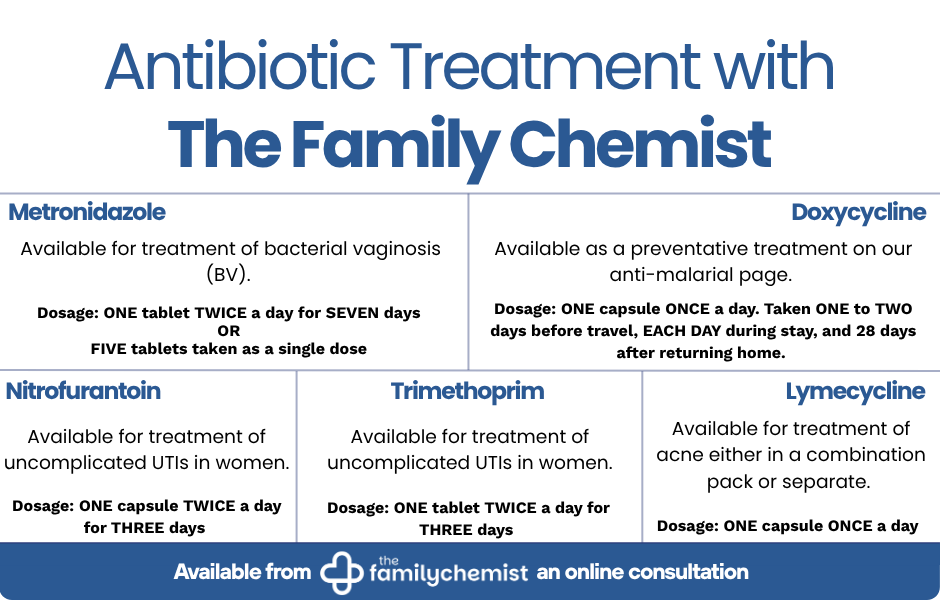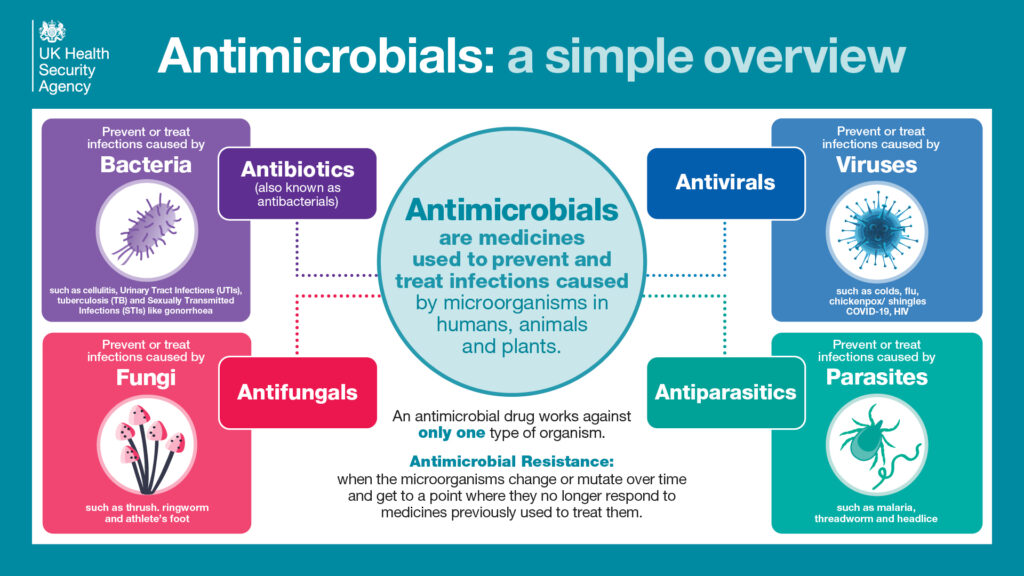Antimicrobial Resistance Week: Why Using Antibiotics Responsibly Matters
It’s World Antimicrobial Resistance (AMR) Awareness Week! At The Family Chemist, we recognise that this is the perfect time to give a reminder of the important role we all play in protecting the power of antibiotics. In the UK, antibiotic resistance is a growing health challenge. Due to antibiotics being taken incorrectly or too often, which can lead to bacteria developing ways to survive future treatments. Over time, the medicines we have come to rely upon could become less effective. This puts us all at a greater risk of illness.
Whether you’re accessing treatment through an NHS prescription or purchasing private medication for conditions such as urinary tract infections (UTIs), acne, or bacterial vaginosis (BV), the way antibiotics are taken has a direct effect upon how you recover from the illness, and potential future bacterial infections.
Why Should You Complete Your Full Course of Antibiotics?
One of the most important steps in preventing a recurrence of infections, and antibiotic resistance, is by completing your full course of antibiotics exactly as prescribed. Illness is a journey, and even though we can begin to feel better, and the obvious symptoms of sickness may have passed, bacteria can linger. To fully rid ourselves of sickness, we must complete the full course. Stopping early can allow that lingering bacteria to mutate and multiply. Adapting to make it harder to treat in the future.
Antibiotics are prescribed for a specific duration and dosage which ensures that the infection is treated safely and completely. Skipping doses or stopping early can reduce how well that antibiotic works and increases the risk.

Avoid Unnecessary Antibiotic Use
Even though infections can often give similar symptoms, they can be caused by different microbes. Bacterial infections are caused by bacteria, and viral illnesses such as colds, flu, and most coughs, are caused by a virus. This difference means that the treatment will also be different. Taking antibiotics for a viral illness won’t attack any virus, and won’t make you feel any better. In fact, they can have the opposite effect, exposing bacteria in the body unnecessarily to antibiotics. This gives them more opportunities to become resistant.
This is why it’s important to discuss recurrent bacterial infections such as UTIs or BV to a healthcare professional to avoid too many repeated courses. Conditions which may be recurring or where a previous course may not have helped could need a different type of treatment, or further investigation.
Each course of antibiotics should be prescribed by a healthcare professional. They should understand the complete history of the infection, and of the person who is ill. To make sure that the medication they are prescribing is the best possible course of action and to make you feel well again.
Responsible Use in the Private Sector
At The Family Chemist, we offer antibiotic treatment for a select few conditions. Supplying antibiotics such as nitrofurantoin, trimethoprim, lymecycline, doxycycline, and metronidazole where clinically appropriate following a thorough assessment to ensure the treatment is necessary, safe, and the best course of action for you. Each request is reviewed individually by a clinician who will follow evidence-based UK guidance (including Public Health England antimicrobial stewardship recommendations).
Fully AMR-Trained Pharmacy Staff
Not only our clinicians, but all members of our pharmacy team have completed additional antimicrobial resistance training. Ensuring that our staff are fully trained in areas of antibiotic treatment and are antibiotic guardians.

Photo credit: UK Health Security Agency
The Bottom Line
Antibiotics have become a vital part of modern medicine. From hospital to home, patients use antibiotics to treat both life-threatening illnesses to minor everyday conditions. But their ability to keep us safe also relies upon us. How and when we take antibiotics is important in making sure that we stay healthy. Not only today, but far into the future.
Completing every course, avoiding unnecessary antibiotic use, and seeking advice when unsure, can all ensure that antimicrobial resistance is avoided.
This Antimicrobial Resistance Week, let’s work together to keep antibiotics effective; for ourselves, our communities, and for future generations.







